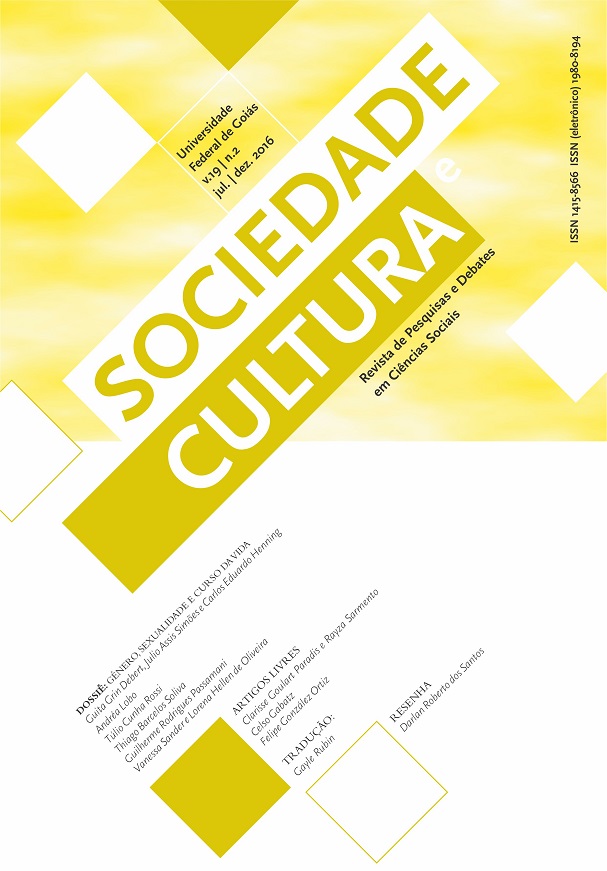Sobre mulheres fortes e homens ausentes: pensando conjugalidades como processos em Cabo Verde
DOI:
https://doi.org/10.5216/sec.v19i2.48666Abstract
O artigo aborda as afetividades, as formas possíveis de conjugalidades e os dilemas enfrentados por homens e mulheres, mas, sobretudo, por mulheres, no processo de construção de relações conjugais. Os dados de pesquisa têm como lócus o arquipélago de Cabo Verde, especialmente a Ilha da Boa Vista. Em Cabo Verde, as relações familiares seriam marcadas por uma centralidade feminina combinada com um sistema patriarcal. O laço afetivo fundamental nesse contexto seria aquele estabelecido entre mãe e filho(a), e as relações de filiação teriam preponderância sobre aquelas baseadas na afinidade. Argumento nesta pesquisa que as relações afetivo-conjugais são vividas de formas distintas nos percursos de vida de homens e mulheres e têm reflexos sobre os ciclos de vida dos grupos domésticos. Destaco ainda as formas que a conjugalidade pode assumir ao longo da vida e as estratégias de construção de proximidades adotadas pelas mulheres no cotidiano de suas relações com os homens.
Downloads
Downloads
Published
How to Cite
Issue
Section
License
Authors who publish in this journal agree to the following terms:
- Authors retain the copyright and grant the journal the right of first publication, the work being simultaneously licensed under the Creative Commons Attribution License, which allows the sharing of the work with acknowledgment of authorship and of the initial publication in this journal;
- Authors are authorized to enter into additional contracts separately, for non-exclusive distribution of the version of the work published in this journal (eg, publishing in an institutional repository or as a book chapter), with acknowledgment of authorship and of the initial publication in this journal;
- Authors are allowed and encouraged to post and distribute their work online (eg, in institutional repositories or on their personal page) at any point before or during the editorial process, as this can bring productive change as well as increases the impact and the citation of the published work (see O Efeito do Acesso Livre).



